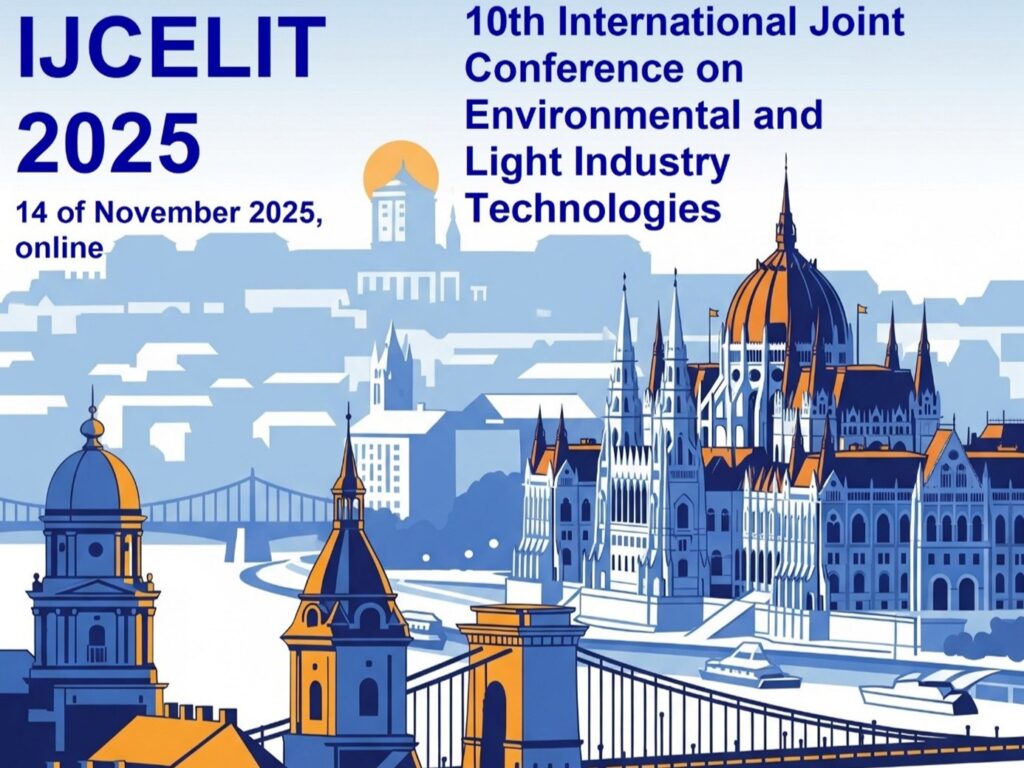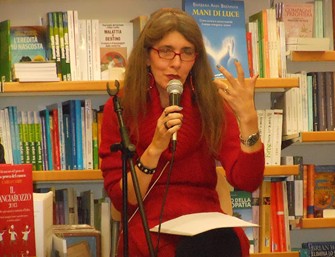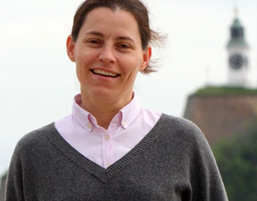IJCELIT 2025


CALL FOR PAPERS
The Faculty of Light Industry and Environmental Engineering of Óbuda University is pleased to announce the
10th International Joint Conference on Environmental and Light Industry Technologies (IJCELIT)
to be held online on November 14, 2025.
The International Conference IJCELIT aims to unite researchers, engineers, and creative artists involved in environmental and light industries, from fundamental research to industrial applications. We particularly welcome contributions that showcase the latest scientific breakthroughs, technological developments, and innovative solutions contributing to a more sustainable and efficient future.
IJCELIT consists of three simultaneous events, with a joint plenary session highlighting technological developments and trends and their effects on the biophysical environment. The conference offers a unique platform for participants to share their research findings, discuss current professional challenges, and forge new collaborations. Each event will showcase selected scientific-technical papers and highlight emerging technologies in the areas of:
- Graphic Technologies Workshop (GCTW): Focusing on the latest advancements in printing technologies, digital media, image processing, and visual communication.
- Industrial Design and Material Technology (ISDIT): Presenting new materials, sustainable design methodologies, and innovative approaches in industrial design.
- Environmental Engineering Workshop (WESE): Addressing current issues in environmental protection, waste management, renewable energy sources, and environmental monitoring.
We encourage all interested parties to submit their abstracts and presentations reflecting their innovative work related to the above fields. The conference provides an excellent platform for knowledge sharing, professional networking, and discussing future research directions.
We look forward to your valuable contributions!
Organizing Committee of the Conference:
Patron: Prof. Dr. Levente Kovács, Rector, Obuda University
General chair: Dr. habil. Laszló Koltai, Dean, Obuda University RKK
Co-Chair: Dr. habil. Edit Csanak, Vice Dean, Obuda University RKK
Co-Chair: Bodáné Dr. habil. Rita Kendrovics, Obuda University RKK
Scientific Coordination and Operative Assistance:
Prof. (hc) Dr. Csaba Horváth
Email: horvath.csaba@uni-obuda.hu
Tel: +36 309355840
Members of the Scientific Committee:
Dr. habil. Laszló Koltai, Obuda University RKK, Associate Professor
Dr. habil. Rita Bodáné-Kendrovics, Óbuda University RKK, Associate Professor
Dr. habil, Edit Csanák DLA, Óbuda University RKK, Associate Professor
Prof. Dr. Márta Kisfaludy DLA, Óbuda University RKK, professor
Prof. Dr. Marianna Ágnes Halász, Óbuda University RKK, professor
Prof. hc. Dr. Csaba Horváth, Óbuda University RKK, honorary professor
Prof. Dr. Hosam Bayoumi Hamuda, Óbuda University RKK, associate professor
Dr. habil. Róbert Németh, Óbuda University RKK, associate professor
Dr. Ákos Borbély, Óbuda University RKK, associate professor
Dr. habil. Tamás Csiszér, Óbuda University RKK, associate professor
Dr. Krisztina Demény, Óbuda University RKK, assistant professor
Dr. Csaba Ágoston, Óbuda University RKK, assistant professor
Prof. Dr. Nemanja Kasikovic, University of Novi Sad / Serbia, Professor
Prof. Dr. Zivko Pavlovic, University of Novi Sad / Serbia, Professor
Prof. Dr. Sandra Didijer, University of Novi Sad / Serbia, Professor
Prof. Dr. Anastasios Politis, University of West Attica / Greeces, Professor
Prof. Dr. Daiva Sajek Kauno kolegija HEI in Kaunas, Lithuania, Professor
Prof. Dr. Rasa Urbas, University of Ljubljana /Slovenia, Professor
Prof. Dr. Diana Gregor-Svetec, University of Ljubljana / Slovenia, Professor
Prof. Dr. Igor Majnaric, University of Zagreb / Croatia, Professor
Dr. Mehmet Öguz, Marmara University /Turkiye, Associate Professor
Prof. Dr. Naik Dharawath, Central Connecticut State University / CT, USA, Professor
Prof. Dr. Charles Tabor Weiss, Clemson University / SC, USA, Professor
Prof. Dr. Klaudio Pap, University of Zagreb, Professor
Prof. Dr. Kenneth L. Macro, California Polytechnic State University / CA, USA, Professor
Dr. Marija Pesic, University of Novi Sad / Serbia, Assistant Professor
Prof. Dr. Cem Aydemir, Marmara University, Turkiye, Professor
Dr. Amanda Wells Bridges, Clemson University / SC, USA, Assistant Professor
Dr. Visnja Mihajlovic, University of Novi Sad / Serbia, Associate Professor
Prof. Dr. Sadhan Kumar Ghosh, S.D.&C.E. Research Centre, India, Director General
Prof. Dr. Lyudmyla Symochko, University of Coimbra, Portugal, Professor
Dr. Salma Latiqe, Sidi Mohamed Ben Abdellah University, Morocco, Professor
GCTW
ISDIT
WESE
Dates and Venue
The conference will take place on November 14, 2025 – online
Abstract submission extended deadline: October 23, 2025
Notification of acceptance: October 25, 2025
Registration deadline: October 27, 2025
Full paper submission deadline: January 30, 2026
Program: November 14, 2025
Book of Abstracts
The Book of Abstracts are available here
Keynote speakers
Dr. Manuela Zambianchi

Prof. Dr. Manuela Zambianchi teaches Psychology at the ISIA University Institute in Faenza, at the Master’s Degree in Psychology of Longevity at the University of Padua and at the University of Pavia. She is the author of over 50 publications, including books and scientific articles. Her research interests focus on health, positive aging, positive psychology, and the experience of time.
Promoting human positive functioning through the integration of Positive Psychology and Ageing Psychology with Design and Engineering research Positive Psychology has demonstrated, through numerous studies, in synergy with Design, that it can give life to effective projects for health and well-being in the different stages of life. An example, which will be explored in greater depth, concerns the emerging area of research on the relationship between frequenting art venues, particularly museums, and the psychological and social well-being of people of all ages. This result, which is linked to various individual psychological processes under study, is also the fruit of the construction of stimulating and appropriate environments for experiencing knowledge, personal growth, stress reduction, a field of research and intervention of Design and Engineering. A second area of research concerns the phenomenon of population ageing, which is defined by the WHO as a true „global challenge”. It requires multidisciplinary research and intervention efforts, in order to promote active, independent and quality ageing for the greatest possible number of people. Even in this field of research, the synergy between Psychology in its various theoretical declinations, Design and Engineering can represent a valid response to this social challenge. Indeed, new areas of research demonstrate interesting connections between healthy lifestyles and cognitive, physical, and social functioning, highlighting the role of resources such as creativity in longevity. Research in Engineering and Design could provide new tools to improve or enhance these transversal skills and abilities.
Dr. Višnja Mihajlović

Prof. Dr. Višnja Mihajlović completed her undergraduate, magisterium and doctoral studies at the University of Novi Sad. She graduated from the Faculty of Natural Sciences and Mathematics. She received her magisterium and doctoral degrees from the Faculty of Technical Sciences in Novi Sad and earned the title of Doctor of Technical Sciences.
Her scientific interest is the impact assessment of waste management on the environment, including the possibilities of applying the circular economy through the reduction of the use of natural resources, the use of waste as a resource. She is working as Associate Professor at the University of Novi Sad, Technical Faculty Mihajlo Pupin Zrenjanin.
Challenges and Opportunities of Textile Waste Management in Serbia’s Circular Economy The growing volume of textile waste presents a significant environmental and economic challenge worldwide, and Serbia is no exception. This paper explores the current state of textile waste management in Serbia, examining the current legislative framework, collection systems, recycling capacities, and public awareness levels. Serbia’s textile waste sector remains largely underdeveloped, with most post-consumer textiles ending up in landfills or informal channels. The lack of infrastructure, limited investment in recycling technologies, and weak enforcement of environmental policies further hinder progress. This study identifies key trends likely to shape the future of textile waste management in Serbia, including the adoption of EU-aligned regulations, increased participation of the private sector, and rising consumer consciousness about sustainability. By analysing current barriers and highlighting future opportunities, the paper offers recommendations and directions for building a more efficient and sustainable textile waste management system in Serbia.
Dr. Donna Templeton

Dr. Donna Templeton is an Assistant Professor of Graphic Communication at Cal Poly State University, bringing over 15 years of teaching experience to the academic arena. She teaches courses in printing, quality, design, digital publishing, and emerging technologies while fostering a rich learning environment for her students. Dr. Templeton earned her PhD in Communications with an emphasis in Strategic Media, which has fueled her passion for research in visual communication. While rooted in print, her previous research explored the innovative realm of emerging technologies, particularly augmented reality, enabling integrated and extended communication beyond the physical page. Dr. Templeton’s work advances academic understanding and focuses on how technology can enhance communication strategies. Her current research explores visual communication strategy and visual literacy, areas she believes are pivotal in the evolution of effective communication in a screen-based and visually saturated world. Her commitment to these emerging fields underscores her dedication to advancing both theoretical knowledge and practical applications.
Integrating Visual Literacy as a Core Competency Across Higher Education Disciplines In the twenty-first century, the growing use of images and visual media is changing what it means to be „literate.” The rise of smartphones and digital platforms has made it easy for anyone to create and share content. As a result, images are no longer just supporting text—they are now a main way people share information. While reading and writing text are still important in higher education, there is a clear need to include visual literacy in education as well. Unfortunately, there are still few standard tools, materials, or frameworks for teaching this skill. Visual literacy, the ability to understand and create visual messages, is now essential for success in both education and the workplace. It must become a key part of courses not only in graphic communications but across many different fields. This presentation will highlight the urgent need to teach visual literacy in higher education, especially within graphic communications. It will introduce a new core curriculum course designed to help students learn how to analyze and create effective visual content. This course will cover visual language, design principles, digital media tools, and multimedia communication. Importantly, visual literacy also prepares students for an AI-driven world. As artificial intelligence tools increasingly work with images, videos, and design, students must be able to communicate effectively using AI visual media. By learning visual literacy, students will be better prepared to work alongside AI, make informed decisions, and succeed in a rapidly changing digital world.
Registration
https://forms.cloud.microsoft/e/3X2YBLX1y1?origin=lprLink

Registration Fees

Registration includes online participation in the conference and the publication of your abstract and paper in separate volumes with ISBN numbers. Please note that the publication containing the papers will be released in 2026.
The official language of the conference is English. All abstracts and manuscripts should be submitted in English; the presentations should also be prepared in English.
Payment information
Please make sure that the transferred amount arrives by 3 November 2025!
Name of the bank: MKB Bank Nyrt.
Account number of Obuda University: 10300002-13268139-00014901
IBAN: HU38 10300002-13268139-00014901
SWIFT CODE: MKKBHUHBXXX
Please note: RKK PREN 001, IJCELIT2025, NAME OF THE PARTICIPANT.
Abstract Submission
Authors are invited to submit an abstract of about 200 words (maximum 1 page). Abstracts will be anonymously reviewed by independent experts and accepted or rejected by the Scientific Committee of each event. The abstracts should provide sufficient and transparent information on the research work for the reviewers. Abstracts should be sent by email to the conference coordinator (horvath.csaba@uni-obuda.hu)
Abstracts will be published in: “Book of Abstracts IJCELIT-2025”
Please download this template to write an abstract!
Extended Deadline: October 6, 2025
Paper Submission
Authors are kindly asked to prepare their full papers according to the template. Papers should be sent by e-mail to the conference scientific coordinator (horvath.csaba@uni-obuda.hu).
Papers submitted on time, meeting general quality requirements for scientific publishing, and presented at the conference will be published in the “Book of Scientific, Technical and Art Releases – 2026”. (Publisher: OR RKK)
Please download this template to write a paper!
Deadline: January 31, 2026.
PPT presentation
Authors are kindly asked to prepare their presentations in PPT format. The time allotted to each speaker is 20 minutes. To prevent technical problems, authors are requested to pre-record their presentations and send them in MP4 format, if possible, using a file share to the conference scientific coordinator (horvath.csaba@rkk.uni-obuda.hu).
Deadline: November 7, 2025.
Poster presentation
Authors are kindly asked to send their poster presentations in PDF and JPEG format. Please maintain the maximum size of the file to be 3 MB. Please include the following instructions on your poster:
- Name, date and venue of the conference.
- Logo of the conference, please download from the conference website
- Title of the paper
- Authors with their affiliation information
- The key information and relevant figures illustrating the research.
- Please organise this information according to the International Conference poster presentation requirements.
Send the poster using a file share to the conference scientific coordinator (horvath.csaba@uni-obuda.hu)
Deadline: November 7, 2025.
Contact person:
Dr. habil. Csaba Horvath
Obuda University
Rejto Sandor Faculty of Light Industry and Environmental Engineering
Institute of Media Technology and Light Industry Engineering
 +36 30 935 5840
+36 30 935 5840
 1034 Budapest, Bécsi út 96/B
1034 Budapest, Bécsi út 96/B
 horvath.csaba@uni-obuda.hu
horvath.csaba@uni-obuda.hu


